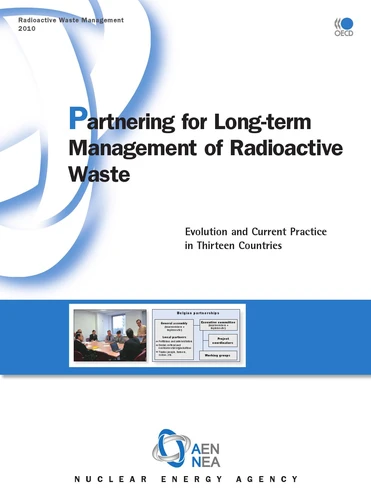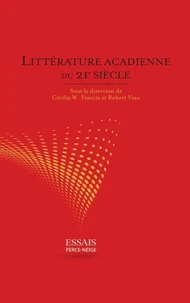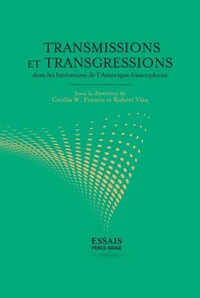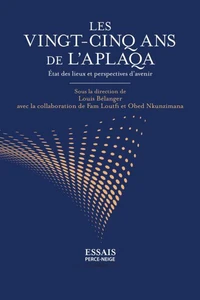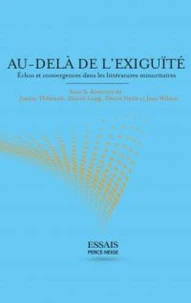Partnering for Long - Term Management of Radioactive Waste. Evolution and Current Practice in Thirteen Countries
Par :Formats :
Disponible dans votre compte client Decitre ou Furet du Nord dès validation de votre commande. Le format Multi-format est :
- Pour les liseuses autres que Vivlio, vous devez utiliser le logiciel Adobe Digital Edition. Non compatible avec la lecture sur les liseuses Kindle, Remarkable et Sony
 , qui est-ce ?
, qui est-ce ?Notre partenaire de plateforme de lecture numérique où vous retrouverez l'ensemble de vos ebooks gratuitement
Pour en savoir plus sur nos ebooks, consultez notre aide en ligne ici
- Nombre de pages136
- FormatMulti-format
- ISBN978-92-64-08370-7
- EAN9789264083707
- Date de parution08/04/2010
- Protection num.NC
- Infos supplémentairesMulti-format incluant PDF avec W...
- ÉditeurOECD
Résumé
National radioactive waste management programmes are in various phases of siting facilities and rely on distinct technical approaches for different categories of waste. In all cases, it is necessary for institutional actors and the potential or actual host community to build a meaningful, workable relationship. Partnership approaches are effective in achieving a balance between the requirements of fair representation and competent participation.
With host community support, they also help ensure the desirable combination of a licensable site and management concept as well as a balance between compensation, local control and development opportunities. This report provides up-to-date information on experience with local partnership arrangements in 13 countries. The characteristics, advantages and aims of community partnerships are also described in addition to the concept's evolution over the past decade.
With host community support, they also help ensure the desirable combination of a licensable site and management concept as well as a balance between compensation, local control and development opportunities. This report provides up-to-date information on experience with local partnership arrangements in 13 countries. The characteristics, advantages and aims of community partnerships are also described in addition to the concept's evolution over the past decade.
National radioactive waste management programmes are in various phases of siting facilities and rely on distinct technical approaches for different categories of waste. In all cases, it is necessary for institutional actors and the potential or actual host community to build a meaningful, workable relationship. Partnership approaches are effective in achieving a balance between the requirements of fair representation and competent participation.
With host community support, they also help ensure the desirable combination of a licensable site and management concept as well as a balance between compensation, local control and development opportunities. This report provides up-to-date information on experience with local partnership arrangements in 13 countries. The characteristics, advantages and aims of community partnerships are also described in addition to the concept's evolution over the past decade.
With host community support, they also help ensure the desirable combination of a licensable site and management concept as well as a balance between compensation, local control and development opportunities. This report provides up-to-date information on experience with local partnership arrangements in 13 countries. The characteristics, advantages and aims of community partnerships are also described in addition to the concept's evolution over the past decade.

